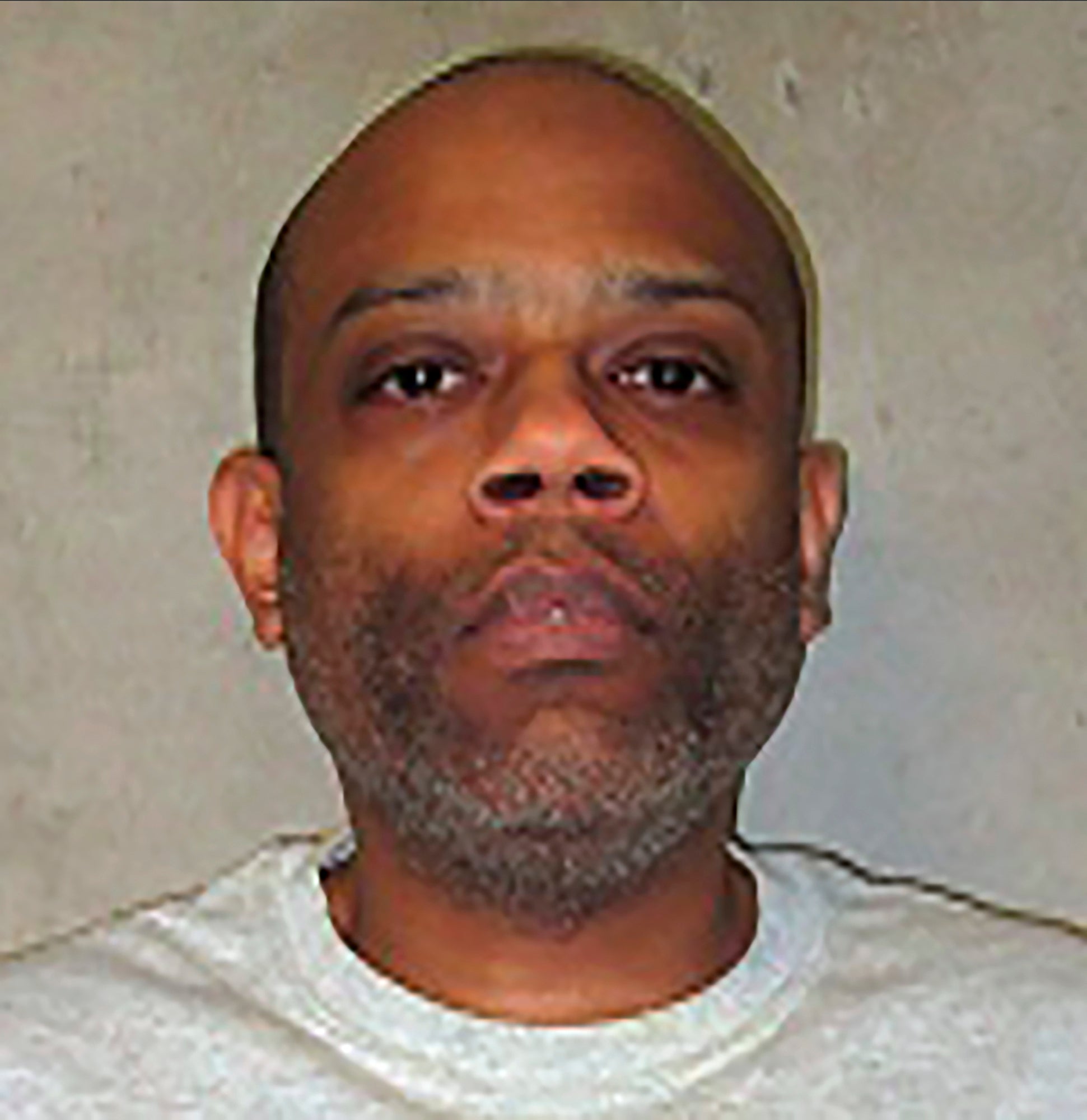Oklahoma prepares to execute man for 2001 hotel slayings
Oklahoma is preparing to execute a man for the brutal slayings of two hotel workers during a robbery in 2001

Your support helps us to tell the story
From reproductive rights to climate change to Big Tech, The Independent is on the ground when the story is developing. Whether it's investigating the financials of Elon Musk's pro-Trump PAC or producing our latest documentary, 'The A Word', which shines a light on the American women fighting for reproductive rights, we know how important it is to parse out the facts from the messaging.
At such a critical moment in US history, we need reporters on the ground. Your donation allows us to keep sending journalists to speak to both sides of the story.
The Independent is trusted by Americans across the entire political spectrum. And unlike many other quality news outlets, we choose not to lock Americans out of our reporting and analysis with paywalls. We believe quality journalism should be available to everyone, paid for by those who can afford it.
Your support makes all the difference.Oklahoma prepared to execute a man on Thursday for the brutal slayings of two hotel workers during a robbery in 2001.
Donald Anthony Grant, 46, is scheduled to receive a lethal injection at the Oklahoma State Penitentiary in McAlester. He will be the first person executed in the U.S. this year, and the third in Oklahoma since the state resumed lethal injections in October following a near seven-year hiatus.
During a clemency hearing in November, Grant admitted killing Brenda McElyea and Felicia Suzette Smith so that there would be no witnesses to his robbery of the Del City hotel. Court records show both women were shot and stabbed, and Smith was also bludgeoned. Prosecutors say both women also begged Grant to spare their lives before he killed them.
During November's hearing, Grant expressed “deep, sincere remorse” and apologized for the killings, but the state’s Pardon and Parole Board voted 4-1 against recommending clemency.
“I can't change that," Grant said of the crime while speaking to the board. “If I could, I would, but I can't change that."
Two of Grant's attorneys, Susan Otto and Emma Rolls from the federal public defender's office, argued that he was mentally ill and had suffered brain damage that made him a candidate for mercy. They also discussed Grant’s childhood growing up in a New York City housing project during the crack epidemic of the 1980s, a time when he was frequently beaten and members of his family experienced alcoholism, drug addiction and mental illness.
“Mercy is called for in this case," Otto told the panel. “It recognizes this man, mentally ill and brain damaged, is not a just target of execution.”
But the board also heard from members of McElyea's family, who tearfully urged them to reject clemency for Grant.
McElyea’s sister, Shirl Filcher, recalled the pain she experienced when she had to tell their father that McElyea had been killed.
“I had to call my dad and tell him his daughter, his baby girl, was dead,” Filcher said. “I had never seen him cry, but that night I heard him weep and it broke my heart.”
Grant also asked a federal judge to temporarily halt his execution, arguing that he should be reinstated as a plaintiff in a separate lawsuit challenging Oklahoma's three-drug lethal injection protocol as presenting a risk of unconstitutional pain and suffering. But both a federal judge and a three-judge panel of the 10th U.S. Circuit Court of Appeals in Denver previously denied that request. The U.S. Supreme Court denied Grant's request on Wednesday.